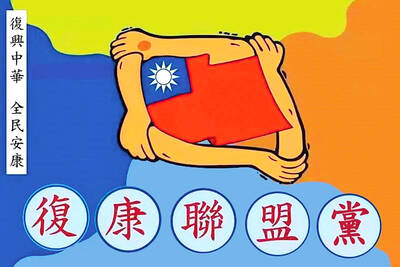In their first telephone calls with US president-elect Joe Biden since the US election, the leaders of Japan, South Korea and Australia yesterday reaffirmed plans to form close ties with the next administration to tackle issues including climate change and regional security.
The three key Asian allies — Japanese Prime Minister Yoshihide Suga, South Korean President Moon Jae-in and Australian Prime Minister Scott Morrison — joined other global leaders in recognizing the Democratic challenger’s victory over US President Donald Trump, who has so far refused to concede.
All sides expressed their determination to strengthen bilateral ties, as well as tackle global issues such as the COVID-19 pandemic and climate change, Biden’s office said.

Photo: AFP
The conversations signal that Biden will pursue a markedly different strategy from Trump.
Suga said that he spoke with Biden by telephone and confirmed the importance of bilateral ties.
“President-elect Biden said that he looks forward to strengthening the US-Japan alliance and working together on achieving a free and open Indo-Pacific,” Suga said in separate comments at the Prime Minister’s Office in Tokyo.
Biden told Suga that the security treaty between the two countries covers East China Sea islands — the Diaoyutai Islands (釣魚台) — that are administered by Japan, but also claimed by Taiwan and China.
Speaking to Moon, Biden reaffirmed the US commitment to defend South Korea, highlighting Seoul as a “lynchpin of the security and prosperity of the Indo-Pacific region,” Moon’s spokesman Kang Min-seok said.
“President Moon asked for close cooperation for the forward-looking development of the bilateral alliance, and the denuclearization and peace on the Korean Peninsula,” Kang told a briefing in Seoul.
“President-elect Biden said he would closely cooperate to resolve the North Korean nuclear issue,” he said.
South Korean officials are also hopeful that Biden would quickly resolve a drawn-out, multi-billion US dollar dispute with Washington over the cost of thousands of US troops on the peninsula.
Tackling the COVID-19 pandemic and climate change were key themes in Biden’s calls with all three leaders, readouts from Biden’s office showed.
Morrison said he spoke with Biden about emission reduction technology, although a target for zero net emissions by 2050 was not discussed.
“I raised with the president-elect the similarity between the president-elect’s comments and policies regarding emissions reduction technologies that we needed to achieve that, and we look forward to working on those issues,” Morrison told reporters in Canberra.
Moon and Suga said they agreed to arrange summits with Biden shortly after his inauguration in January.
Biden will also face the challenge of managing unresolved political and economic disputes between South Korea and Japan, which have threatened a military intelligence-sharing arrangement and complicated US efforts to counter China.
Biden on Wednesday named Ron Klain as his White House chief of staff, his first major appointment as he builds his administration.
Anthony Blinken, a diplomat and longtime confidant of Biden is seen as a likely pick for secretary of state or national security adviser, both key roles for Asian allies.
Additional reporting by Bloomberg

AIR DEFENSE: The Norwegian missile system has proved highly effective in Ukraine in its war against Russia, and the US has recommended it for Taiwan, an expert said The Norwegian Advanced Surface-to-Air Missile Systems (NASAMS) Taiwan ordered from the US would be installed in strategically important positions in Taipei and New Taipei City to guard the region, the Ministry of National Defense said in statement yesterday. The air defense system would be deployed in Taipei’s Songshan District (松山) and New Taipei City’s Tamsui District (淡水), the ministry said, adding that the systems could be delivered as soon as the end of this year. The US Defense Security Cooperation Agency has previously said that three NASAMS would be sold to Taiwan. The weapons are part of the 17th US arms sale to

SERIOUS ALLEGATIONS: The suspects formed spy networks and paramilitary groups to kill government officials during a possible Chinese invasion, prosecutors said Prosecutors have indicted seven retired military officers, members of the Rehabilitation Alliance Party, for allegedly obtaining funds from China, and forming paramilitary groups and assassination squads in Taiwan to collaborate with Chinese troops in a possible war. The suspects contravened the National Security Act (國家安全法) by taking photos and drawing maps of key radar stations, missile installations and the American Institute in Taiwan’s headquarters in Taipei, prosecutors said. They allegedly prepared to collaborate with China during a possible invasion of Taiwan, prosecutors said. Retired military officer Chu Hung-i (屈宏義), 62, a Republic of China Army Academy graduate, went to China

INSURRECTION: The NSB said it found evidence the CCP was seeking snipers in Taiwan to target members of the military and foreign organizations in the event of an invasion The number of Chinese spies prosecuted in Taiwan has grown threefold over a four-year period, the National Security Bureau (NSB) said in a report released yesterday. In 2021 and 2022, 16 and 10 spies were prosecuted respectively, but that number grew to 64 last year, it said, adding that the Chinese Communist Party (CCP) was working with gangs in Taiwan to develop a network of armed spies. Spies in Taiwan have on behalf of the CCP used a variety of channels and methods to infiltrate all sectors of the country, and recruited Taiwanese to cooperate in developing organizations and obtaining sensitive information

BREAKTHROUGH: The US is making chips on par in yield and quality with Taiwan, despite people saying that it could not happen, the official said Taiwan Semiconductor Manufacturing Co (TSMC, 台積電) has begun producing advanced 4-nanometer (nm) chips for US customers in Arizona, US Secretary of Commerce Gina Raimondo said, a milestone in the semiconductor efforts of the administration of US President Joe Biden. In November last year, the commerce department finalized a US$6.6 billion grant to TSMC’s US unit for semiconductor production in Phoenix, Arizona. “For the first time ever in our country’s history, we are making leading edge 4-nanometer chips on American soil, American workers — on par in yield and quality with Taiwan,” Raimondo said, adding that production had begun in recent